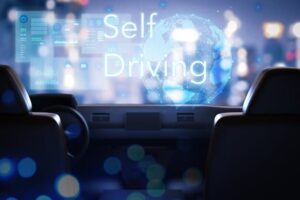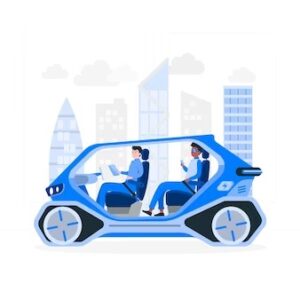Self-driving cars and other new transportation technologies are poised to revolutionize the way we get around. These technologies have the potential to make transportation safer, more efficient, and more accessible for everyone. However, they also raise a number of ethical and social questions.

In this blog post, we will explore the future of transportation and the potential impact of self-driving cars and other new transportation technologies. We will discuss how these technologies could change the way we get around, as well as the ethical and social implications that need to be considered.
How will self-driving cars and other new transportation technologies change the way we get around?

Self-driving cars and other new transportation technologies could change the way we get around in a number of ways:
Safety: Self-driving cars are expected to be much safer than human-driven cars. This is because self-driving cars are not susceptible to human error, such as distracted driving or drunk driving.
Efficiency: Self-driving cars could also make transportation more efficient. For example, self-driving cars could coordinate with each other to reduce traffic congestion and travel time.
Accessibility: Self-driving cars could make transportation more accessible for people who cannot drive themselves, such as the elderly and people with disabilities.
Convenience: Self-driving cars could also make transportation more convenient. For example, passengers could work, relax, or socialize while the car drives itself.
In addition to self-driving cars, there are a number of other new transportation technologies that are emerging, such as:
Electric vehicles: Electric vehicles are becoming more affordable and accessible, and they have the potential to reduce air pollution and greenhouse gas emissions.
Micromobility solutions: Micromobility solutions, such as electric scooters and bikes, are becoming increasingly popular in urban areas. These solutions can provide a convenient and affordable way to get around short distances.
Public transportation: Public transportation is also becoming more efficient and accessible in many cities. For example, some cities are investing in new bus rapid transit systems and light rail lines.
Ethical and social implications

While self-driving cars and other new transportation technologies have the potential to improve our lives in many ways, they also raise a number of ethical and social questions. Some of the key ethical and social implications of these technologies include:
Safety: Even though self-driving cars are expected to be much safer than human-driven cars, there is still a risk of accidents. Who is responsible if a self-driving car gets into an accident? How should self-driving cars be programmed to make decisions in life-or-death situations?
Privacy: Self-driving cars will collect a lot of data about their passengers and their surroundings. This data could be used by companies to target passengers with advertising or to sell to other third parties. How can we protect the privacy of passengers in self-driving cars?
Equality: Self-driving cars could make transportation more accessible for everyone, but there is a risk that they could also exacerbate existing inequalities. For example, if self-driving cars are only affordable to the wealthy, this could lead to a situation where the wealthy have access to fast and convenient transportation, while the poor are forced to rely on slower and less convenient public transportation.
Employment: Self-driving cars and other new transportation technologies could automate many jobs in the transportation sector, such as truck drivers and taxi drivers. This could lead to job losses for millions of people. How can we help workers who lose their jobs to automation?
Conclusion
Self-driving cars and other new transportation technologies have the potential to revolutionize the way we get around. However, it is important to carefully consider the ethical and social implications of these technologies before they are widely deployed. We need to develop policies and regulations that ensure that these technologies are used safely, ethically, and equitably.
Additional thoughts

In addition to the ethical and social implications discussed above, self-driving cars and other new transportation technologies could also have a significant impact on the design of our cities and towns. For example, if self-driving cars become the norm, we may need to redesign our streets and parking lots to accommodate them. We may also need to invest in new infrastructure to support new transportation technologies, such as electric vehicle charging stations and micromobility infrastructure.
The future of transportation is exciting, but it is important to be mindful of the challenges that lie ahead. We need to work together to ensure that self-driving cars and other new transportation technologies are used to create a better future for everyone
If you have thoughts to share, questions to ask, or if there’s a specific topic you’d like us to cover in the future, please don’t hesitate to reach out. Your feedback and engagement drive us forward.
Until next time, keep learning, keep innovating, and keep pushing the boundaries of what’s possible.

